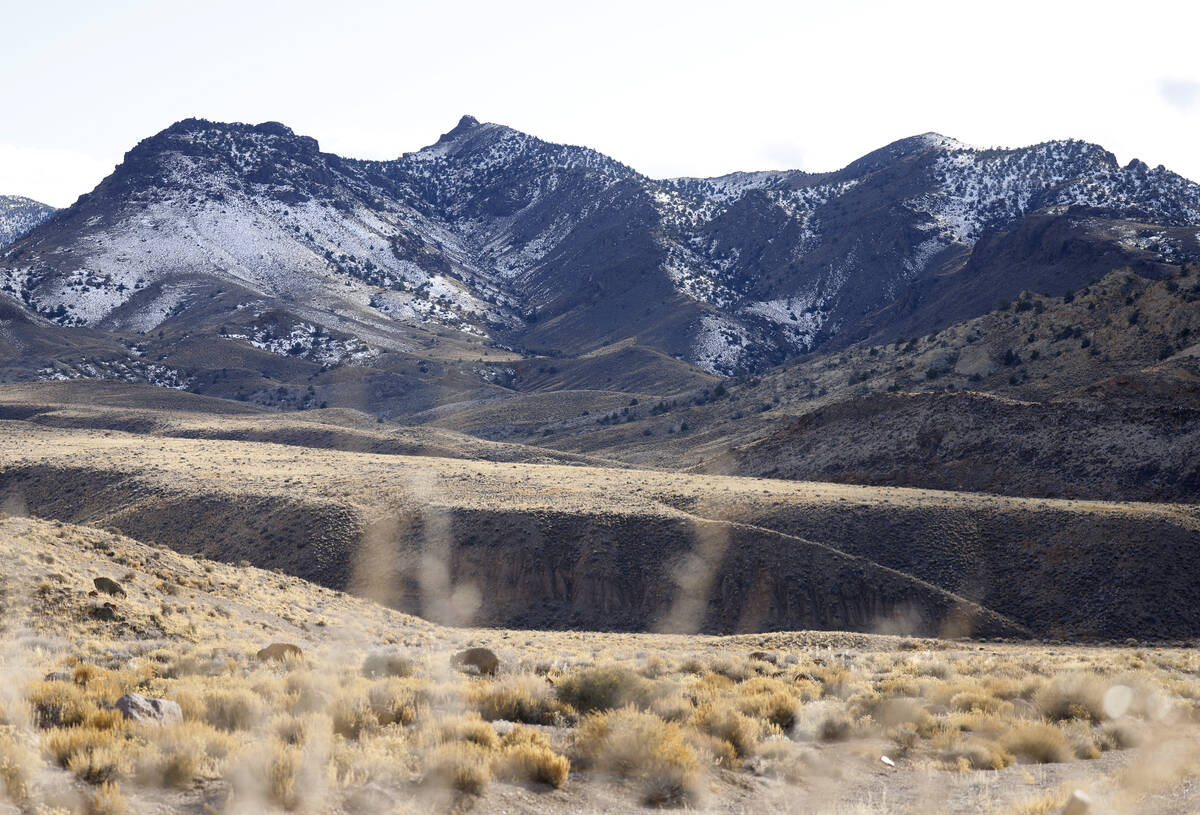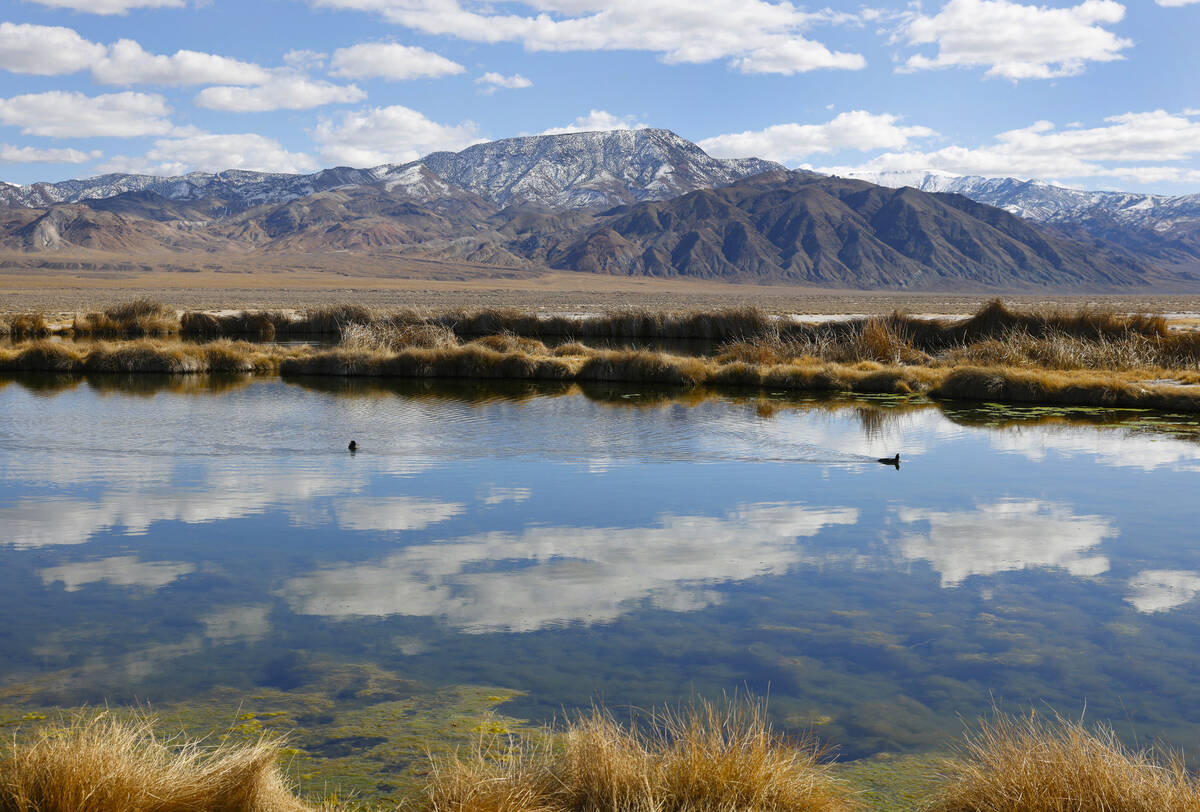With ‘critical minerals,’ Nevada’s mining industry posits a greener future
The past and future of Nevada’s economy have much to do with the riches found below our feet.
On the national stage, Nevada may be best known for its tourism and gaming industries. But the Silver State — named for the primary mineral produced when it was admitted as a state in 1864 — is a mining haven, with the industry worth billions in production value and tax revenue.
And some of those minerals produced here are earmarked as “critical” by the U.S. Department of Energy.
Of those 50 critical minerals, Nevada currently produces four: lithium, copper, magnesium and barium. A fully permitted vanadium mine is expected to begin production in Eureka County, too.
These minerals are those that are most urgently needed across the country, whether that be for the green energy transition, defense or health care, said Amanda Hilton, president of the Nevada Mining Association.
“Nevada is blessed with a very unique geology,” said Hilton, who used to be the general manager of the Robinson Mine, a copper mine in White Pine County. “Many areas of the country would be thrilled to have the deposits that we have.”
What are they used for?
Perhaps the most controversial mineral as of late is lithium, best known for its use in electric vehicle batteries.
It has been touted, mostly by Democratic leaders, as one needed to transition the country away from the use of fossil fuels.
Nevada is the only state in the nation that actively produces the mineral, in Esmeralda County’s Silver Peak. But some environmentalists believe, in most cases, its production has and will come at the expense of Nevada’s tribal sites, endangered species and strained water resources.
Recently, the Nye County town of Amargosa Valley has garnered statewide support in leaders’ fight to keep exploratory lithium drilling away as residents worry about home wells they rely on for drinking water. Nevada’s Congressional delegation sent a letter to the U.S. Interior Department urging a 20-year suspension of any new mineral claims for the area, which is a stone’s throw from the Ash Meadows Wildlife Refuge.
State leaders have stressed building a “lithium loop” in Nevada, meaning that the state would house all facilities needed from the mining stage to production and, eventually, the recycling of lithium batteries. Last year, University of Nevada, Reno was awarded $21 million and a federal “tech hub” designation to help make that a reality.
Copper, produced at two sites in White Pine and Lander counties, is largely used in wiring. It has applications for energy, EV batteries, solar panels, wind turbines and power grids.
Barium, or barite, is a dense mineral added to drill mud to prevent oil and natural gas wells from blowing out. Magnesium is primarily used in metal-making, used for smartphones and car production. Vanadium, which isn’t yet produced in Nevada but will be soon, is applicable in renewable batteries, construction and car manufacturing.
Mining in Nevada will continue to grow, Hilton said, providing even more rare, high-paying jobs for rural Nevadans. Two specific taxes apply to the industry — the Nevada net proceeds tax and the silver and gold excise tax, which directly funds education, she said.
“Mines that exist in rural areas are providing significant benefits to those communities, not only through taxes, but through investments,” she said. “That’s something our industry is really proud of.”
Contact Alan Halaly at ahalaly@reviewjournal.com. Follow @AlanHalaly on X.

















